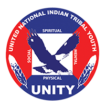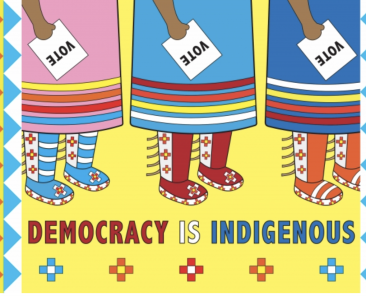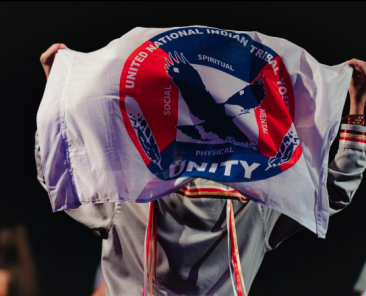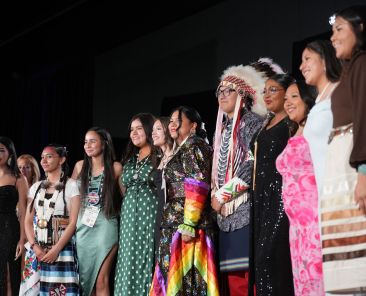Resources
Resources and Partners
Introduction to Digital Storytelling (PDF | 747 KB) gives an overview of what digital storytelling is, what you need for a workshop, and next steps for hosting a digital storytelling training.
Healing-Informed Care Handout (PDF | 761 KB) defines what Indigenous healing-informed care is and how it is a trauma-informed approach, explains the cultural foundations of healing-informed care and its relationship to the Cultural Strategic Framework, and provides prevention workers and practitioners a deeper understanding of the cultural strengths that guide cultural resilience.
Mental Health Fact Sheet (PDF | 433 KB) provides an overview of mental health perceptions in Indian Country, including myths vs. facts, and how tribal communities can begin to overcome negative perceptions.
Opioid Misuse in Indian Country Fact Sheet (PDF | 447 KB) provides an overview of how opioid dependency affects physical health, and AI/AN efforts to prevent opioid misuse in communities and villages.
SAMHSA Grants Funding to Tribes (PDF | 182 KB) briefly summarizes funding and technical assistance opportunities through SAMHSA to assist tribal efforts to increase capacity for promoting mental health.
The Tribal TTA Center Fact Sheet (PDF | 937 KB) provides an overview of the Tribal TTA Center’s approach and activities.
Suicide Prevention in Indian Country Fact Sheet reviews suicide prevention in Indian Country and how the 2012 National Strategy for Suicide Prevention can apply to tribal communities.
Bullying Prevention in Indian Country Fact Sheet describes the harmful effects of bullying and how to prevent it among tribal youth.
GONA/GOAN Fact Sheet provides an overview of the curriculum for the Gathering of Native Americans/Gathering of Alaska Natives.
GONA/GOAN Curriculum & Facilitator Guide (PDF | 1.5 MB) presents a roadmap through the GONA/GOAN journey, offering history, pre-planning resources, and a detailed examination of the four GONA/GOAN themes.
GONA/GOAN Toolkit (PDF | 1.8 MB) provides hands-on resources, checklists, activities, stories, and other materials to supplement the Curriculum & Facilitators Guide.
Steps for Conducting Research and Evaluation in Native Communities (PDF | 371 KB) provides some history of research in American Indian and Alaska Native communities and tips for successful outcomes.
The Evidence Based Practices Resource Center contains a collection of scientifically-based resources for a broad range of audiences, including Treatment Improvement Protocols, toolkits, resource guides, clinical practice guidelines, and other science-based resources.
The Tribal Action Plan (TAP) Learning Series is a safe, relaxed learning environment for those wishing to become familiar with TAP development. Four modules guide leadership and department heads to lead a community-developed TAP. Youth, elders, community leaders, those in recovery and tribal members at large are encouraged to get involved. Tribal teams that follow this course through all 4 modules will be better prepared to write and implement a Tribal Law and Order Act TAP for addressing alcohol and substance misuse. TAP webinars can be found here.
Featured Resources
 Suicide Prevention
Suicide Prevention
To Live to See the Great Day that Dawns
A culturally appropriate guide for empowering tribal youth and preventing suicide.
See more manuals and toolkits.
 Substance Use Disorders
Substance Use Disorders
Drum-Assisted Recovery Therapy for Native Americans
A culturally appropriate guide for empowering tribal youth and preventing suicide.
See substance use disorder resources.
 Violence Prevention
Violence Prevention
A fact sheet from the Centers for Disease Control and Prevention.
See more violence prevention resources.
 Mental Health Promotion
Mental Health Promotion
A website dedicated to mental health in Indian Country.
See more Native-specific organizations that promote mental health.
Digital Stories
These short videos, created by tribal youth, showcase the resilience of tribal communities and share stories of wellness.
The Gift (2:31)
Shares the story of Michelle, a Native American woman who found the gift of healing through the strength of her own spirit
2011 Menominee Bear Clan Story—Community (2:02)
Celebrates the survival of the Menominee people, culture, language, and ancestral lands
Together (0:30)
Emphasizes the importance of togetherness and the need for all community members to be involved in preventing suicide and substance misuse
Cultural Values Digital Story (1:54)
Describes the importance of preserving tribal culture and language in the Information Age
Indigenous Protective Factors (0:50)
Discusses protective factors for tribal communities and emphasizes the importance of promoting them to help protect youth against suicide
Resources and Partners
Addiction Technology Transfer Center
The mission of the Addiction Technology Transfer Center is to raise awareness of evidence-based treatment and recovery practices, build skills to prepare the workforce to deliver state-of-the-art addictions treatment and recovery services, and change practice by incorporating these new skills into everyday use for the purpose of improving addiction treatment and recovery outcomes.
Disaster Training and Technical Assistance Center
The Disaster Training and Technical Assistance Center helps prepare states, territories, tribes, and local entities to deliver an effective mental health and substance use response to disasters.
Office of Indian Alcohol and Substance Abuse
The Office of Indian Alcohol and Substance Abuse and its federal partners provide tribes with prevention and treatment resources as required by the Tribal Law and Order Act.
SAMHSA Directors
The SAMHSA Regional Directors are a part of SAMHSA’s leadership team and work to advance SAMHSA’s mission and improve the delivery of behavioral health services in each of the 10 HHS Regions.
Indian Health ServiceS
Division of Behavioral Health
Indian Health Service (IHS) Division of Behavioral Health serves as the primary source of national advocacy, policy development, management, and administration of behavioral health, alcohol and substance use, and family violence prevention programs. Working in partnership with tribes, tribal organizations, and urban Indian health organizations, the Division coordinates national efforts to share knowledge and build capacity through the development and implementation of evidence- and practice-based interventions and cultural-based practices in Indian Country.
IHS Tribal Epidemiology Centers
Tribal Epidemiology Centers serve American Indian and Alaska Native tribal and urban communities by managing public health information systems, investigating diseases of concern, managing disease prevention and control programs, responding to public health emergencies, and coordinating these activities with other public health authorities.
Suicide Prevention Program
The American Indian and Alaska Native National Suicide Prevention Strategic Plan is a national initiative to address suicide prevention based on fostering collaborations across tribes, tribal organizations, urban Indian organizations, and the entire Indian Health System. This site is designed to highlight existing resources to support suicide prevention efforts, strengthen protective factors, and help communities and individuals begin to recover from the grief caused by suicide.
Department of Justice
Justice Programs Council on Native American Affairs
The Justice Programs Council on Native American Affairs is the Office of Justice Programs’ senior-level policy body, established to develop consistent tribal justice and safety policy and strategies and enhance coordination across the department.
Office of Tribal Justice
The Office of Tribal Justice provides a principal point of contact within the Department of Justice to listen to the concerns of Indian tribes and to communicate the Department’s policies to the tribes and the public; to promote internal uniformity of Department of Justice policies and litigation positions relating to Indian County; and to coordinate with other federal agencies and with state and local governments on their initiatives in Indian Country.
Office on Violence Against Women
The mission of the Office on Violence Against Women is to provide federal leadership in developing the national capacity to reduce violence against women and administer justice for and strengthen services to victims of domestic violence, dating violence, sexual assault, and stalking. Find tribal specific information.
Tribal Justice and Safety
Tribal Justice and Safety is an initiative of the Justice Department to increase engagement, coordination, and action on public safety in tribal communities.
Bureau of Indian Affairs
Bureau of Indian Affairs
The Bureau of Indian Affairs’ mission is to enhance quality of life, promote economic opportunity, and carry out the responsibility to protect and improve the trust assets of American Indians, Indian tribes, and Alaska Natives.
Bureau of Indian Education
The Bureau of Indian Education’s mission is to provide quality education opportunities from early childhood through life in accordance with a tribe’s needs for cultural and economic well-being, in keeping with the wide diversity of Indian tribes and Alaska Native villages as distinct cultural and governmental entities.
Office of Indian Services
The Office of Indian Services facilitates support for tribal people and tribal governments by promoting safe and quality living environments, strong communities, self-sufficiency, and individual rights, while enhancing protection of the lives, prosperity, and well-being of American Indians and Alaska Natives.
Office of Justice Services
The Office of Justice Services provides technical assistance and services to federally recognized Indian tribes and communities and respects and protects sovereignty through promotion of self-determination. Its guiding principles are to protect life and property, maintain order and justice, prevent crimes, reduce recidivism, support tribal justice systems, and provide safe, secure, and humane correctional services.
National Tribal Organizations
Center for Native American Youth
The Center for Native American Youth is dedicated to improving the health, safety, and overall well-being of Native American youth through communication, policy development, and advocacy. It is also a primary resource for activities related to the Generation Indigenous Native Youth Network.
Indian Country Child Trauma Center
The Indian Country Child Trauma Center was established to develop trauma-related treatment protocols, outreach materials, and service delivery guidelines for American Indian and Alaska Native children and their families.
Indian Law Resource Center
The Indian Law Resource Center is a nonprofit law and advocacy organization that provides legal assistance to indigenous peoples of the Americas to combat racism and oppression, to protect their lands and environment, to protect their cultures and ways of life, to achieve sustainable economic development and genuine self-government, and to realize their other human rights.
Mending the Sacred Hoop
Mending the Sacred Hoop works from a social change perspective to end violence against Native women and children while restoring the safety, sovereignty, and sacredness of Native women. They are committed to strengthening the voice and vision of Native peoples through grassroots organizing to restore the leadership of Native women in addressing and ending domestic and sexual violence.
National American Indian Housing Council
The National American Indian Housing Council is the only national organization representing housing interests of Native people who reside in Indian communities, Alaska Native villages, and on Native Hawaiian homelands. It provides training and technical assistance to Native housing entities in their efforts to provide culturally relevant and quality affordable housing on behalf of Native people.
National Congress of American Indians
Protecting tribes’ sovereignty and inherent legal rights is the primary focus of the National Congress of American Indians. Its mission is to protect and enhance treaty and sovereign rights; secure traditional laws, cultures, and ways of life; promote a common understanding of the rightful place of tribes in the family of American governments; and improve the quality of life for Native communities and peoples.
National Council of Urban Indian Health
The National Council of Urban Indian Health is the only national 501(c)(3) organization devoted to the support and development of quality, accessible, and culturally competent health services for American Indians and Alaska Natives living in urban settings.
National Indian Child Welfare Association
The National Indian Child Welfare Association is a national voice for American Indian children and families focused on the tribal capacity to prevent child abuse and neglect.
National Indian Education Association
The National Indian Education Association advances comprehensive educational opportunities for American Indians, Alaska Natives, and Native Hawaiians throughout the United States and has created an opportunity for professionals in Indian communities to network and collaborate to improve the educational systems serving Native children.
National Indian Health Board
The National Indian Health Board represents tribal governments—those that operate their own health care delivery systems through contracting and compacting and those that receive health care directly from IHS.
National Native American AIDS Prevention Center
The National Native American AIDS Prevention Center offers a variety of programs to promote education about HIV/AIDS, support prevention efforts, and help foster healthy attitudes about sexuality and sexual health in Native communities.
Suicide Prevention Resource Center: American Indian/Alaska Native Suicide Prevention
In the spirit of honoring Native thought, this section of the Suicide Prevention Resource Center is designed to help visitors reflect and learn, identify existing resources, and use the knowledge and understanding of the communities’ readiness to work toward a common vision for wellness.




